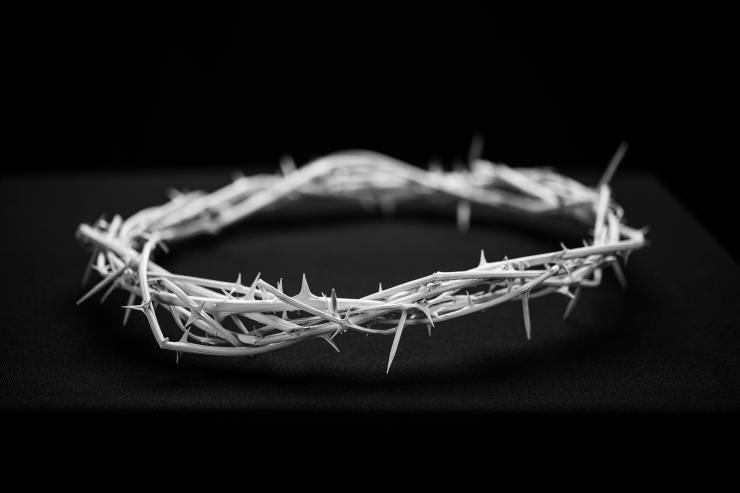
"In all this you greatly rejoice, though now for a little while you may have had to suffer grief in all kinds of trials. These have come so that the proven genuineness of your faith—of greater worth than gold, which perishes even though refined by fire—may result in praise, glory and honor when Jesus Christ is revealed." (1 Peter Chapter 1, verse 6-7)
Tests and trials are all part of the experience of the saint. Some of God's greatest heroes faced some of the greatest trials. The Apostle Paul was beaten, stoned, and imprisoned; even Jesus our savior died a cruel death on the cross.
The way of the cross
Then Jesus said to his disciples, "Whoever wants to be my disciple must deny themselves and take up their cross and follow me" (Matthew Chapter 16, verse 24).
The greater the trials, the greater the glory. I have heard many Christians claim that tests and trials are always of the devil, but this is not always the case. For the saint to progress in glory, the cross must have a perfect work in him. It was not a coincidence that several of Jesus's disciples suffered cruel deaths—it was the price they had to pay for the glory to come.
Jesus's remark to the church of Smyrna may be alien to popular charismatic doctrine today: "Fear none of those things which thou shalt suffer: behold, the devil shall cast some of you into prison, that ye may be tried; and ye shall have tribulation ten days: be thou faithful unto death, and I will give thee a crown of life" (Revelations Chapter 2 verse 10).
One would have thought the right approach was to free them from their suffering by delivering them from death, but Jesus told them to be faithful even in tribulation. The early church understood the doctrines of the fellowship of suffering and the value of the martyr's crown.
Some of them were used as torches on the streets of Rome; some were fed to lions; some like Peter were crucified upside down. In the midst of incredible suffering, they did not lose sight of the glory of God's kingdom.
The fellowship of his suffering
As much as we have learned faith from the faith movement, we will need to learn about suffering. This doctrine is so alien to many believers that some may be freaking out just from reading this.
It was the Apostle Paul who prayed in Philippians 3 verse 10 to know "the fellowship of his suffering". You cannot eliminate suffering from the school of the Holy Spirit, for it is through many trials and tribulations that we enter the kingdom (Acts 14:22).
The tribulation and trials are relative, specially designed to eliminate every atom of self in the saint so that Christ himself may find full expression through the body. After many trials, Paul was able to declare in Galatians chapter 2, verse 20: "I am crucified with Christ: nevertheless, I live; yet not I, but Christ lives in me: and the life which I now live in the flesh I live by the faith of the Son of God, who loved me, and gave himself for me."
The way of the saint is the way of dying. The Spirit of God himself will lead you to the place of the cross until the flesh is totally crucified. You cannot live the resurrected life without dying. Let's look at Paul's credentials:
"Are they servants of Christ? (I am out of my mind to talk like this.) I am more. I have worked much harder, been in prison more frequently, been flogged more severely, and been exposed to death again and again. Five times I received from the Jews the forty lashes minus one.
"Three times I was beaten with rods, once I was pelted with stones, three times I was shipwrecked, I spent a night and a day in the open sea, I have been constantly on the move. I have been in danger from rivers, in danger from bandits, in danger from my fellow Jews, in danger from Gentiles; in danger in the city, in danger in the country, in danger at sea; and in danger from false believers.
"I have labored and toiled and have often gone without sleep; I have known hunger and thirst and have often gone without food; I have been cold and naked. Besides everything else, I face daily the pressure of my concern for all the churches. Who is weak, and I do not feel weak? Who is led into sin, and I do not inwardly burn? If I must boast, I will boast of the things that show my weakness" (2 Corinthians Chapter 11 verse 23-30).
Paul did not boast of his wealth, his family, or his ministry; he boasted in his suffering! If we want the glory, we must also embrace the fellowship of his suffering.
Republished from Christian Today UK.




